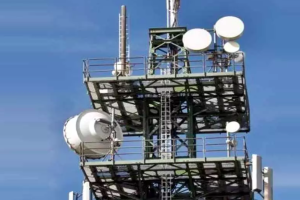The Indian Space Research Organisation registered its first success of the year in a midnight journey of its Polar Satellite Launch Vehicle to space which injected a 740kg imaging satellite for military applications into orbit with precision before going to demonstrate a new technology that can eventually reduce space debris.
PSLV C-44 lifted off with Microsat R, a military application satellite, and Kalasmat, a 10cm cubesat made by students, at 11.37pm on Thursday from the first launch pad at Satish Dhawan Space Centre in Sriharikota.
Read Also, ISRO to launch world’s lightest & India’s first student-made satellite
The launch is PSLV’s 46th flight and the first flight with a new variant of PSLV called PSLV-DL with two strap-ons, each carrying 12.2-tonne of solid propellent.
Around 13 minutes into the mission, the fourth and final stage (PS4) of PSLV injected the primary payload.
Microsat-R at an altitude of about 277.2km. Microsat R has been developed by Defence Research and Development Organisation (DRDO) laboratories.
Congratulating the team for the successful mission, Isro chairman K Sivan said this was the first that PSLV was “flown to the lowest orbit.”
Sivan congratulated the students who designed Kalamsat and said, “For the first time the PS4 will be revived for students to do experiments.”
After the injection of Microsat-R, the PS4 would be reignited and shut off twice, as the stage with an increased velocity is raised to an orbit about 450km in altitude.
An hour and 40 minutes after the launch, the PS4, which would become a rocket debris after its engine is shut off and its fuel depleted, would be revived through solar panels and batteries. Kalamsat, weighing about 1.2kg, still secured to the stage, would be then activated.
PS4 is the smallest of the stages in size with a height of 2.5m and a diameter of 1.34m carrying 1.6 tonne propellent. With two liquid engines applying a thrust of 7.6kN each, PS4 is responsible for the correct injection of the payloads into their respective desired orbits.
According to Isro officials, PS4 will stay ‘alive’ for the next six months before it drifts away and disintegrates upon reaching the earth’s atmosphere. In the meantime, the cubesat made of space grade aluminium will be tested for its communication module, onboard computer, solar panels and electronics designed and developed by Indian students. The data from the tiny satellite will be collected by ground stations.
Inputs, TOI.
























